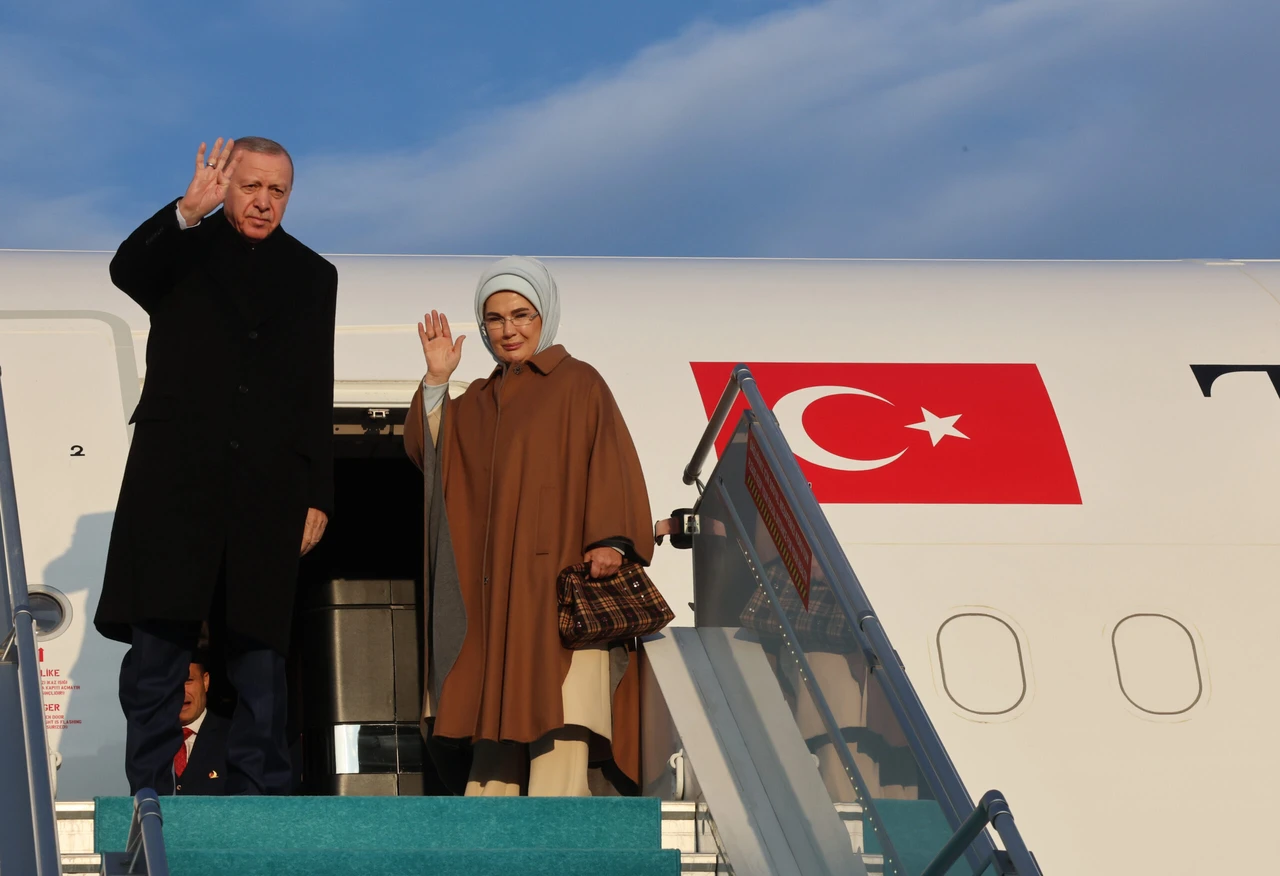Syria seeks Azerbaijan’s help to rebuild oil and gas sector after Assad’s fall
 An employee works at the Rmailan oil field in the northeastern Syria, near the border with Türkiye, on January 8, 2025. (AFP Photo)
An employee works at the Rmailan oil field in the northeastern Syria, near the border with Türkiye, on January 8, 2025. (AFP Photo)
Syrian President Ahmad al-Sharaa has approached Azerbaijan for assistance in restoring Syria’s damaged oil and gas sector, according to sources cited by Middle East Eye.
In their first official meeting, Sharaa and Azerbaijani President Ilham Aliyev discussed energy cooperation on the sidelines of the Antalya Diplomacy Forum last weekend.
Sharaa’s administration, which took over following the fall of Bashar al-Assad’s government in December, is seeking foreign investment to revitalize the country’s energy infrastructure, particularly in northeastern Syria—an area previously occupied by the PKK/YPG.
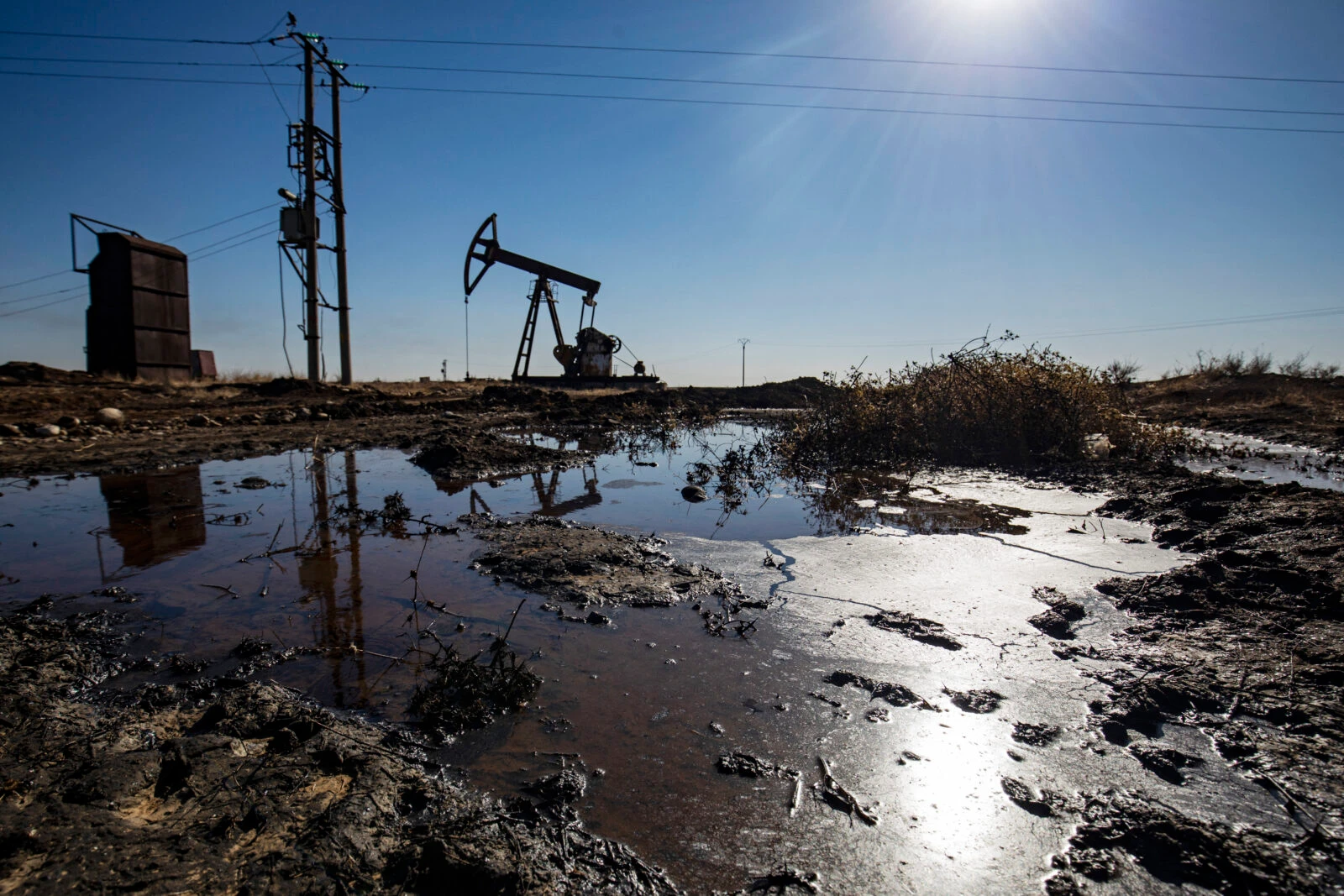
Syria eyes energy partnership with Azerbaijan’s SOCAR
The Syrian government is exploring potential collaboration with SOCAR, Azerbaijan’s state oil company.
According to sources familiar with the discussions, the plan involves SOCAR helping to develop oil and gas fields now nominally under Damascus’ control after a unification deal between Sharaa and Ferhat Abdi Sahin, code-named Mazlum Kobani, or also known as Mazloum Abdi, one of the ringleaders of the terrorist organization PYD/YPG and the so-called commander of the SDF.
The deal reportedly gives Damascus administrative control over the energy assets, with an agreed income split of 70 percent for the central government and 30 percent for local services. However, physical control of the sites remains pending.
Socar Türkiye CEO Elchin Ibadov had previously indicated the company’s interest in Syria, stating Socar is ready to assist in line with strategic interests shared by Azerbaijan and Türkiye.
“If SOCAR Türkiye is assigned a role aligned with the shared strategic interests of our countries—Azerbaijan and Türkiye—and there is demand for this energy, then it is our duty to fulfill it,” he said.
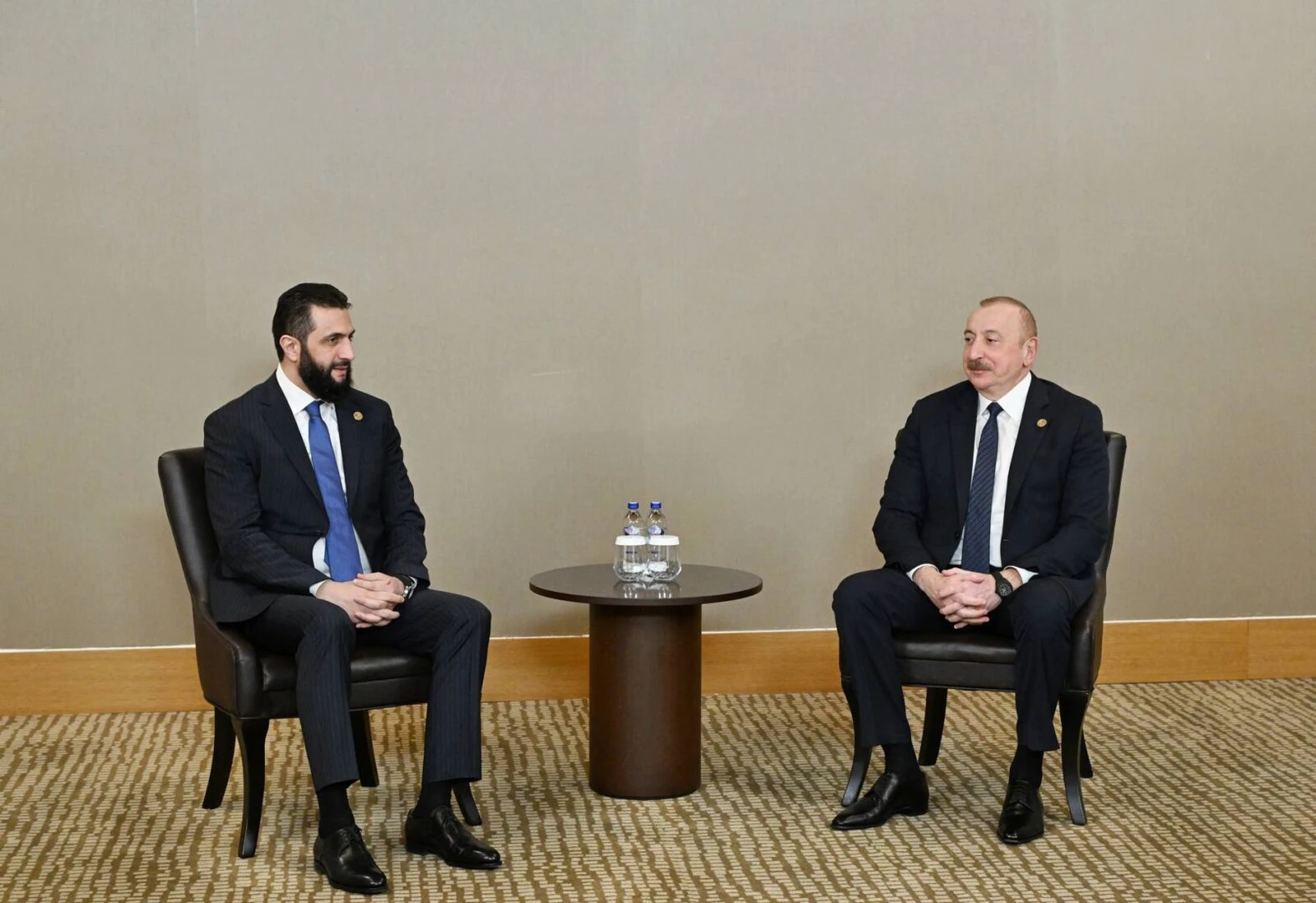
Energy diplomacy intersects with regional dynamics
Analysts believe Syria’s overture to Azerbaijan is part of a broader strategy to balance regional influence, especially given Azerbaijan’s close ties to Israel.
“Syria wants to counterbalance every regional player. Having both Türkiye and Azerbaijan involved in operating the oil and gas fields would provide a sense of assurance regarding Israel,” a source told Middle East Eye, familiar with the Syrian government’s thinking.
This comes shortly after Azerbaijan hosted deconfliction meetings between Turkish and Israeli officials, following Israeli airstrikes on Syrian bases amid regional tensions.
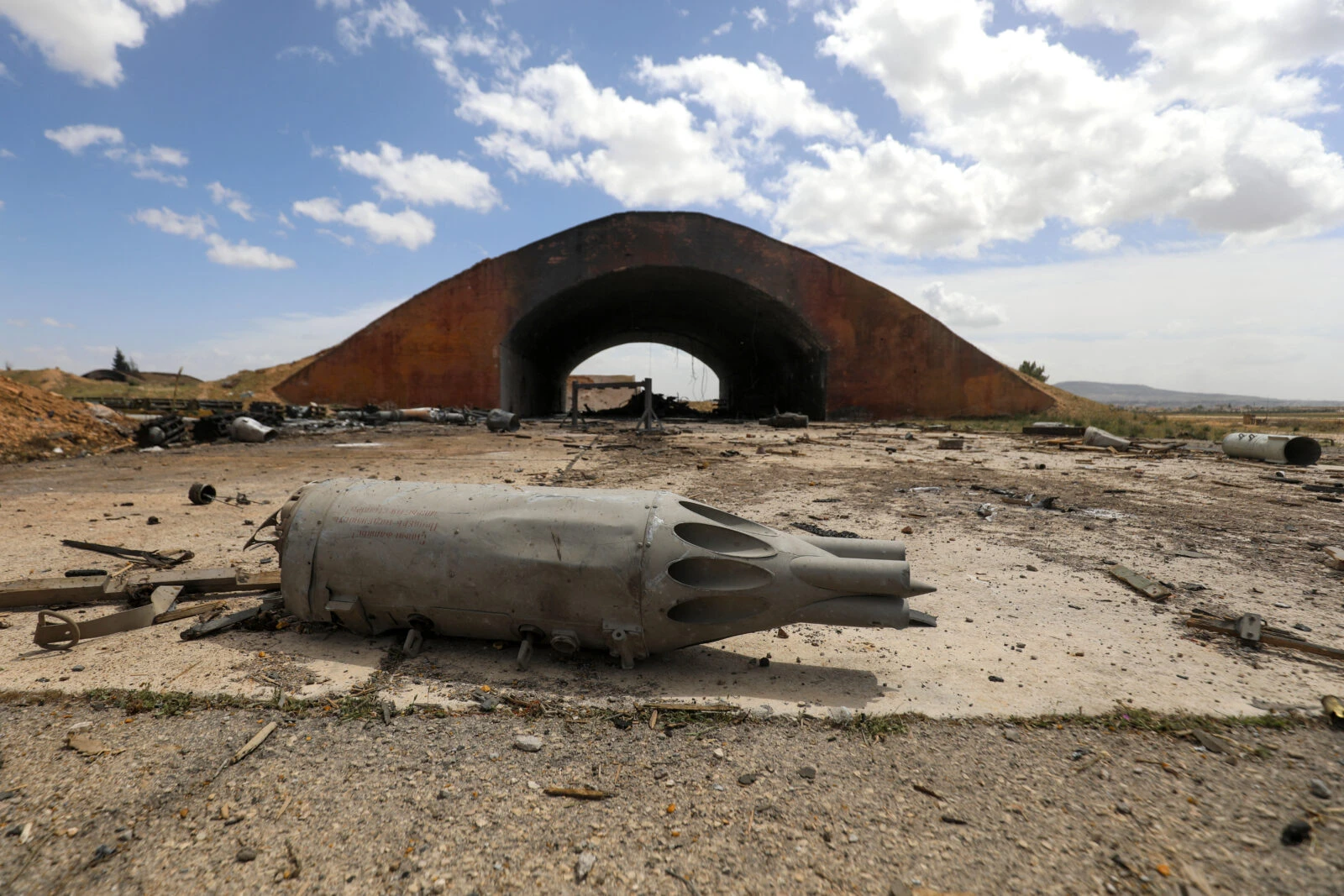
Syria’s energy sector faces long recovery
According to data from Syrian outlet Enab Baladi, Syria currently produces 110,000 barrels of oil per day, a significant drop from its 2010 pre-war production of 385,000 barrels per day. Of the current output, 100,000 barrels originate from fields under PKK/YPG occupation, while 10,000 barrels come from areas governed by the new administration.
Syria’s natural gas output is also down sharply, producing 9.1 million cubic meters per day, compared to 30 million in 2010. Most of the current production—8 million cubic meters—comes from the central government, while the PKK/YPG accounts for 1.1 million.
The U.S. Energy Information Administration (EIA) previously estimated Syria’s proven oil reserves at 2.5 billion barrels and gas reserves at 240 billion cubic meters.
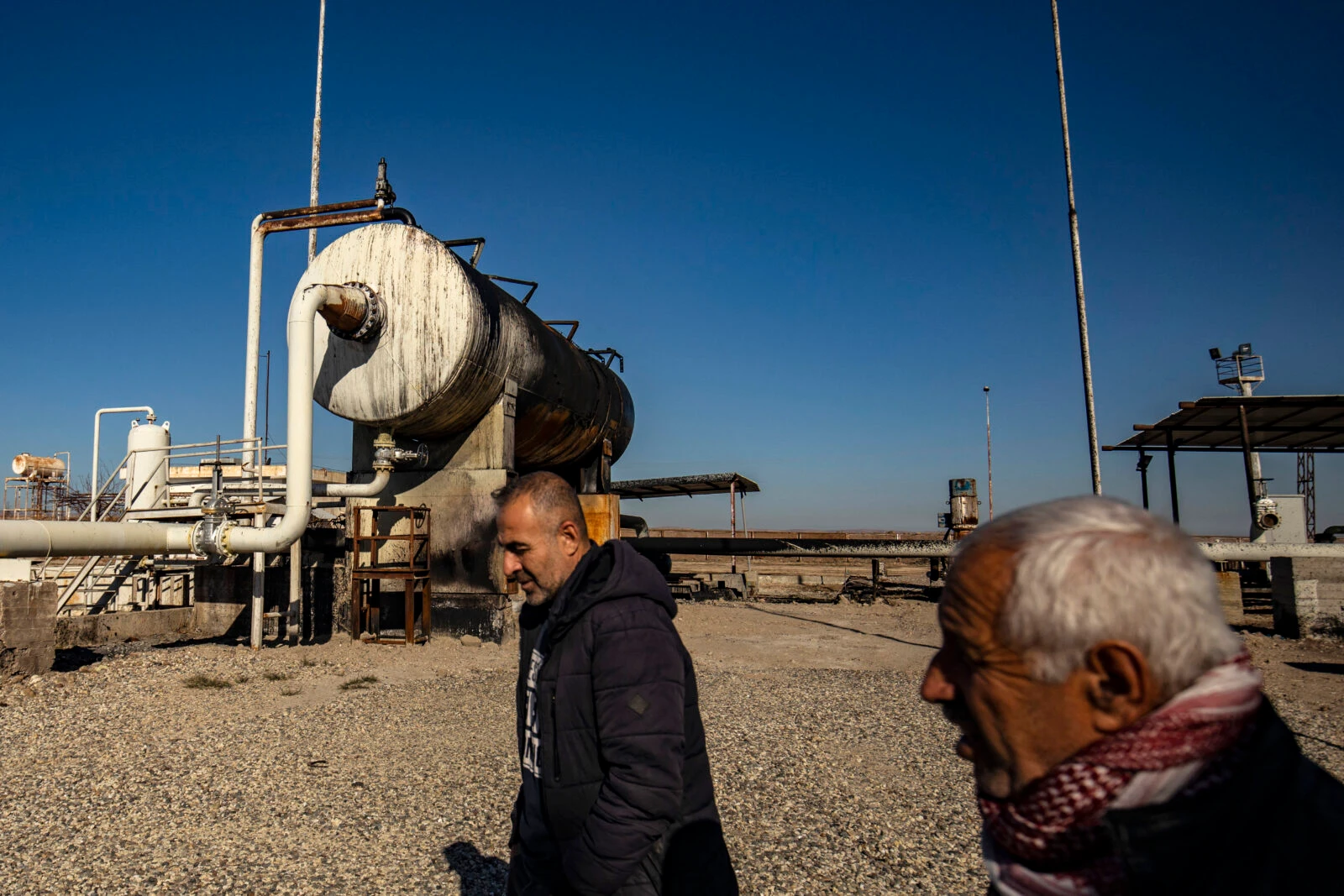
Sanctions eased as international companies weigh return
Following Assad’s ousting, many global energy firms exited Syria due to sanctions. However, the E.U., U.K., and U.S. have recently eased restrictions. Washington’s General License No. 24 (GL24) allows transactions involving energy within Syria under the new governing institutions.
The license, effective for six months, permits the sale, supply, storage, or donation of petroleum products, natural gas, and electricity, and expires on June 8, pending review.
Still, the Wall Street Journal reported that the U.S. has tightened conditions for further sanctions relief, urging Sharaa’s government to expel certain Palestinian political factions and take action against armed groups.

Future hinges on regional engagement and stability
A Turkish official noted that closer ties between Azerbaijan and Syria could help assuage Israeli concerns over the transitional government, which Israeli officials have described as hostile.
For Syria, bringing Azerbaijan into the fold may offer technical expertise and geopolitical leverage as it seeks to stabilize and rebuild its energy sector.

